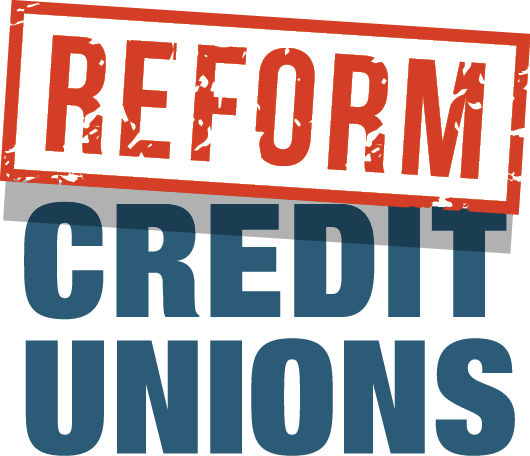In the wake of the recent Tax Foundation analysis of how the credit union federal income tax exemption continues to be an unfair and unwise policy another taxpayer watchdog, the National Taxpayers Union this week released a major new report highlighting the massive hit to federal coffers caused by large credit unions not paying their fair share in taxes. The report’s central conclusion:
“In 2020, lawmakers should focus their attention on the tax treatment of large, bank-like credit unions.”
In reaching this conclusion, NTU looked carefully at the impact of large credit unions with assets of $1 billion or more – a group of financial services giants that’s grown exponentially in the last several years to at least 315 credit unions that have the lion’s share of the industry’s $1.5 trillion in assets.
Looking at the recent surge in large credit unions buying tax-paying banks at a record pace in the last several years, the report found that:
“The budget and revenue implications of current policy are significant. If preserved in its entirety, the credit union tax exemption’s revenue impact will be $22 billion over the next decade, according to the Office of Management and Budget FY21 numbers. This revenue could be put towards more productive and more efficient purposes in the tax code through broad based tax reform. About 75% of the tax advantage flows to the top 5% of credit unions, those with over $1 billion. However, if large credit unions continue the trend of purchasing taxpaying business and taking these entities off the tax rolls, it will increase the revenue cost of the provision.”
The report looked at a growing trend of credit unions also using their tax status to buy assets wholly unrelated to their core business … and taking them off the tax rolls, too.
Buying buildings and leasing space to non-credit unions? No taxes on the profits! Buy an advertising agency with major corporate clients? No taxes on their profits, either.
How, you might be wondering, can PenFed – one of the largest credit unions in the world – get away with that? As NTU kindly explained:
“… Since federal credit unions are considered ‘instrumentalities of the federal government’ they can avoid taxation on profits unrelated to their core business functions. And since they are exempt, many large credit unions are taking advantage of their tax status by pushing the boundaries of their exemption.”
NTU also looked at how it can possibly be that federal credit unions are not required to file IRS Form 990s, something nearly all non-profits and not-for-profits are required to do. As NTU notes:
“Form 990 includes financial information about a non-profit organization including the salaries of its top executives. Because most information on Form 990 is available to the public, it helps provide transparency and accountability for organizations that enjoy tax-exempt status.”
Large credit unions? You guessed it … exempt from having to file Form 990s.
The NTU concludes its detailed report with the following:
“NTU does not support increasing taxes on individuals or businesses, which is why any revenue that would be raised by either repealing the federal tax exemption or UBIT should be applied in a manner that would be revenue-neutral. In other words, this should be part of a larger process to broaden the tax base and lower rates.”
Maybe it’s just us, but that sounds like fair and sustainable federal tax policy, and we agree that Congress needs to take a serious look at whether large credit unions – which to the untrained eye with their gleaming office towers, multi-million dollar advertising campaigns, and hidden executive compensation sure look like for-profit entities – should be allowed to continue to shirk their financial duty.
